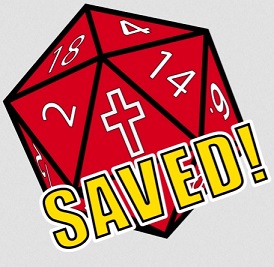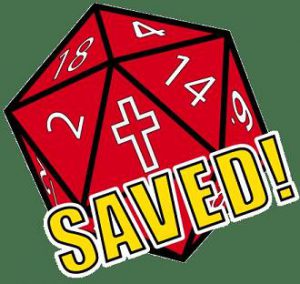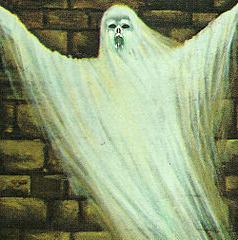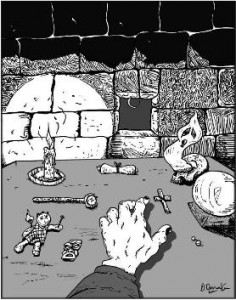This is mark Joseph “young” blog entry #318, on the subject of Toward a Seventh Multiverser Novel.
I have mentioned this to my Patreon patrons, so if you’ve been following me there you already know something of what I am about to ask–and I am asking, seeking the opinion of my readers, which you can express here, by Patreon, on Facebook, or through any of the other social media connections I maintain (Twitter, Pinterest, Goodreads, LinkedIn). Please don’t e-mail me–I have given up on e-mail, and your correspondence will bounce.
If you are reading this, odds are a lot better than even that you are at least aware that I have been writing novels and publishing them free through the Internet, several short chapters each week. Six books have now been written, and the fifth has been published and the sixth started. If you’ve somehow missed these, you can catch up:

- Verse Three, Chapter One: The First Multiverser Novel
- Old Verses New
- For Better or Verse
- Spy Verses
- Garden of Versers
- Versers Versus Versers
Obviously at this moment the last of those is not yet fully published. That makes this difficult, because I have to ask you something that requires you consider what you know and extrapolate what you don’t know. Worse, I wanted to do this without giving spoilers, but on reflection it seems that I am going to have to give you at least the flavor of the situation of each of the characters at the end of the sixth book, and that’s going to be spoilers. I will warn you where to stop reading to avoid the spoilers which pertain to the material not yet published; if you haven’t read any of the novels, or even if you haven’t kept up with everything published to date, there will be spoilers, and that can’t be helped. Either go read the books or live with the spoilers.
In the first of those I introduced three main characters, what I’ll be calling “viewpoint” characters because they’re the characters through whom the story is seen and presented. Each is followed individually, and they join together toward the end of the book. In the second book, one of those characters took a break and we added a new one, again bringing the three characters together toward the end of the book, and in the third and fourth we shuffled which three characters were involved in the story and which took a break.
In the fifth book, a fifth viewpoint character was introduced, and all five were involved in stories. Those five come together, sort of, in the sixth book, and a sixth character is introduced on her own storyline.
Right from the beginning–before the first book was completed–I had a notion that I was going to share this effort with someone else, that at some point we together would create some new characters and then we would spin them off into a separate series which he would write. The introduction of the fifth character was in my mind the beginning of that, but that expectation faded during the writing of that book and even more as the sixth character was introduced. At this point I’m fairly certain it is not going to happen–but I have six active viewpoint characters, and that was manageable in the sixth book when most of them were in the same universe most of the time, but to continue that way would make all the stories too thin in the seventh book. I am thus faced with which characters to include in the next book and which ones to set aside for a hopefully likely future story–and I’ve decided that at least part of that decision will be based on what you, the readers, want, which characters you would like to follow. So let me present to you the options, and you can give me your opinion.
Two options should be mentioned up front. The first is you can choose not to respond at all. If I get little or no response I will give serious consideration to dropping the novels, as although they are enjoyable in the main, they do take time, and I don’t think many of my patrons are supporting me primarily for those. The second is like it: you can tell me that you consider the novels to be a waste of my time, and that I should be putting that time into something else–the time travel movies, more Bible pages, more politics and law, that second edition of Multiverser that has long been back-burnered, whatever you think should be my focus. I’m not saying it’s a democracy, but I am saying that your opinion matters. Even if your advice doesn’t cause me to drop the novels, it might cause me to do more in whatever area you hope to see (and the more so if you are one of my Patrons).
Otherwise, tell me which characters you’d most like to see in the seventh novel, perhaps why, perhaps what hopes you have for their futures. I’m going to tell you a little about each of them here, some of it on the edge of spoilers, to help. To borrow a line from the credits of an old Blackadder episode, the characters are being listed in something like The Order of Disappearance. I don’t want to tell you what happens in the end of Garden of Versers, but I will tell you this much, that only one viewpoint character is still in the world in which he or she begins when the book ends, and in the spoilers section toward the end you’ll probably be able to figure out which one. If you already have one or more favorite characters whose story you would prefer to follow, you can stop reading here and express your opinion through one of those avenues (here, Patreon, Facebook, Twitter, Pinterest, Goodreads, LinkedIn). For what it’s worth, I have already drafted a “next chapter” for five of them, so I’ve got a good solid start whichever way it goes.
Derek Jacob Brown was not in the first novel at all. He was introduced in the second, which was in a sense very much about him, about dealing with his fears. He has been in every novel since, but in the second he comes in as the sprite Theian Toreinu Morach then learns how to transition from one “person” to the other, with the creation of his middle form Ferris Hoffman incidental to that. He trains as a secret agent and goes on a number of missions in book four, and in book five after proving himself an invaluable hero he gets married. Book six begins the story of his married life. There is a solid argument that since he has been in the last five consecutive books he is a prime candidate for omission from the next.
Robert Elvis Slade, often called by a considerably longer titled name but just as often simply by “Bob”, was in some sense the main character of the first book. There he goes from an ordinary guy with delusions of greatness to the hero of the story–and because of this, I instinctively omitted him from the second book. (He appears as a supporting character in some of Lauren’s early chapters, but is never the viewpoint character in that book.) He returned in the third, because the first had left some loose ends and I had decided to bring Shella back into his life, whom he married while they were on a mission. Then they assisted Lauren, worked with Joe in book four, and came to the main world of book five (at the end book four). Slade fancies himself a Warrior of Odin, and is always ready for a battle, at which he is very good. He assumes that wherever he is he is there to hone his skills for Ragnorak. Meanwhile, he’s also in some ways the most fun character, just a bit of a clown in everything, and I know he has fans who like the way he lightens the stories.
Joseph Wade Kondor, or Joe, who has adopted the rank of Captain and earned the title Doctor, was omitted from the third book partly because I decided it was his turn, but largely because the third book would complete Lauren’s major story of confrontations with vampires, and his persistent atheism would have been a complication in that story that I didn’t particularly want either for the story or for the character. That atheism is a defining feature, as he attempts to make sense of a reality around him by finding perfectly natural scientific explanations for abilities and phenomonema his friends believe to be magic. He also deals with the conflict that he is against killing but frequently finds it necessary. At the end of the fourth book he accidentally picked up a companion, Ezekiel “Zeke” Smith, who is also a soldier and something of a skeptic of Kondor’s skepticism.
Lauren Elizabeth Meyers Hastings finished a major story of a battle against vampires across time with the end of the third book, and so sat out the fourth. She returned in the fifth in a story that attempted to challenge her reality, as a patient in a mental hospital, but then joined the others at the end of book five to become part of the team in book six. She is something of a superhero in the stories, as good as or better than any of the others at just about everything, but constantly teaching and training them to be better. The major obstacle in her stories is finding an interesting adversary that actually challenges her abilities without turning it into an ongoing battle.
James Donald Beam came into the story in the fifth book as something of an antihero. He is curmudgeonly and always self-serving, although he has managed to gather something like an adventuring party around himself by making their interests correspond with his own. The team includes Turbirb’durpa, nicknamed “Bob”, an alien with significant psychic abilities but not much else going for him; Dawn Project Prototype Unit Number X Dash Zero Zero, or “Dawn” for short, a child-like humanoid killing machine who follows orders quite strictly; Bron, burly blacksmith with whom he apprenticed and part-time fighter and wizard; and the witch Sophia, his almost accidental wife. It’s also clear that he is not heroic, and not likely to be the star of a heroic tale, except in the accident that it proves to be in his own best interests to do something that incidentally helps others.
Finally, Tomiko Takano appears beginning in book six, so you have just met her. She is a modern Japanese-American teenager not particularly interested in her Japanese culture who has not yet figured out what’s happening to her. She goes through a couple worlds that challenge her conceptions of reality. The best argument for including her is that she is so unknown, a fresh face in the stories. She may also be hardest to write, but then, if I didn’t like a challenge I wouldn’t have created her.
So the question, once again, is whose stories would you, as a reader, like to see continued in book seven? At the moment there is no clear plotline, not so much as a working title–but those things will arise once we have characters beginning a story. It’s not an election, and your opinions are non-binding, you’re welcome to vote for all of them if you like (although that will reduce the influence of your vote, because I’m pretty determined that they won’t all be in the next book). Characters not chosen for this book are expected to return in the future.
Now for the spoilers. If you don’t want to know what is going to happen, you can certainly express your opinion based on your knowledge of the characters without reading further, through the aforementioned means (here, Patreon, Facebook, Twitter, Pinterest, Goodreads, LinkedIn).
Derek has already started a new story in another universe, a familiar “lost colony spaceship” trope with some twists, and his is also a story already rolling–I have both a “next chapter” and a “later chapter” drafted for him. It is a promising start for a story, but will probably be rather cerebral for the foreseeable future. Thematically it’s probably about the value of human beings. He is at something of a cerebral cliffhanger, and I can see readers wanting to know what happens next–which plays strongly against the point that his story has been running for five consecutive books and he should take a break.
Slade has landed in a world which has potential for some interesting ideas, but not a lot of obvious action. It’s one of those worlds that a referee launches because he thinks it might have interesting possibilities but he has no idea what they are. It is a nineteenth century industrial revolution setting, but in an alien world to which he has a previous connection. I have written the next three chapters of his story, and I know where it’s going but not quite how it gets there.
Joe has reached a place where there is some immediate action, a definite cliffhanger, but beyond that it’s not at all clear what he would be doing. He is in a sense reaching the climax of the story of book five, an impending battle which should lead to a denoument, but I don’t know what will happen after that. So I suppose it’s an immediate cliffhanger but promising a quick resolution and not much beyond that. His next three chapters are written, but I don’t know what happens after that.
Lauren is the most open, as she has just left a universe and not yet arrived in another, so she could be anywhere. On the other hand, events leading to her most recent death will have given her something to consider, and I’m contemplating putting her somewhere with someone with whom she can discuss these events. I am undecided. It would be good to have her discuss these issues with Merlin/Omigger, but I don’t have a clear picture of a good world for that. The problem is that I don’t have another character I can reasonably bring into her story whom she would treat as an advisor on such topics, so it won’t be easy to transition to that kind of story for her. I’ve been given some fan advice on possible challenges for her, but nothing has coalesced yet. I am also giving serious thought to dropping her into a Dungeons & Dragons-type world, different from Bob’s opening dungeon crawl because she would be meeting a group of adventurers already on a mission.
I debated where to send Beam, and kept thinking of the same universe. He is now there. There is probably a broad outline of a storyline ahead based on the fact that the player who is the primary inspiration for his character was in this world and did quite a few things while there, but nothing is particularly compelling at the moment. Problematically, his situation shares enough in common with Derek (despite being entirely different) that there’s a good argument for not continuing both of them in the same book. They are both post-civilization worlds, post-apocalyptics without the apocalypse, but that Derek is in space and Beam is underground (The Industrial Complex from The Second Book of Worlds). So there are strong arguments for continuing the Beam story, including that it would be only his third book, and he is very different from the other viewpoint characters, but not if Derek’s story is going to be included. I have also written three chapters for him, but he is only just settling into this world and I haven’t figured out how to move him forward.
Tomiko oddly managed to arrive in a rather dull and ordinary world just in time for something dramatic and extraordinary to happen and sweep her into it. She has in that sense begun a new story for which I have the next three chapters drafted and some sketchy immediate notions but no clear long-term plotline. It doesn’t promise an exciting story, but you never can be sure.
Let me know your thoughts (here, Patreon, Facebook, Twitter, Pinterest, Goodreads, LinkedIn).
Thanks for your input, support, and encouragement.









